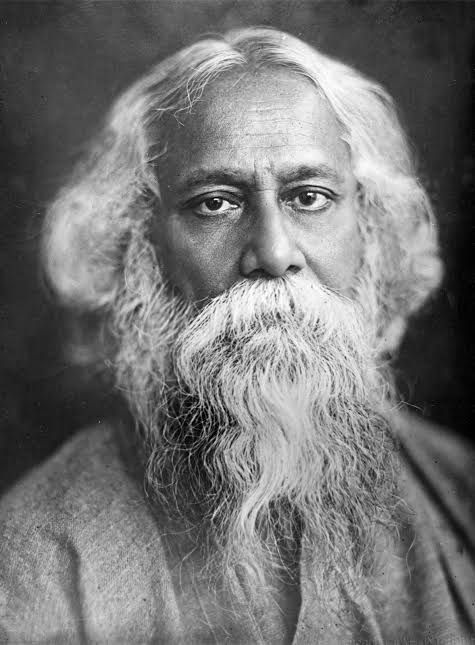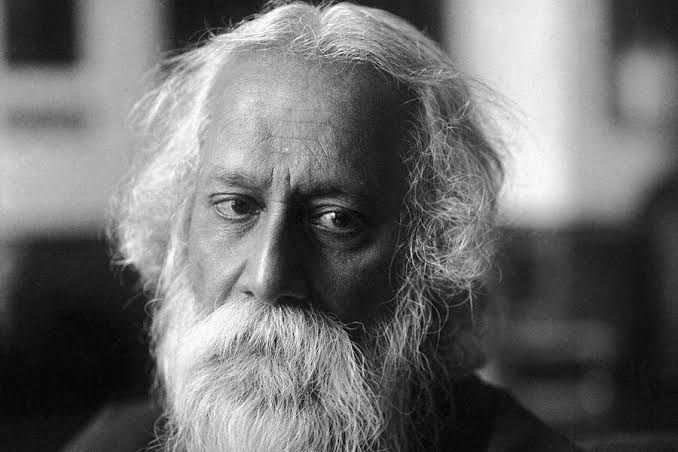
Rabindranath Tagore (1861-1941) was a Bengali polymath and a prominent figure of Indian literature and culture. He was born on May 7, 1861, in Calcutta (now Kolkata), India, to a prominent family of intellectuals and artists.
Tagore's father, Debendranath Tagore, was a philosopher and a leader of the Brahmo Samaj, a socio-religious reform movement in Bengal. Tagore received a traditional education at home and later attended University College London, where he studied law but did not complete his degree.
Tagore's literary career began in the late 19th century when he started writing poems, short stories, and plays in Bengali. He soon gained recognition for his works, which celebrated the beauty of nature, human emotions, and the joys and sorrows of life. His most famous work in this period is the collection of poems, Gitanjali (Song Offerings), which was published in English in 1912 and won him the Nobel Prize in Literature in 1913.

Tagore's literary output was extensive, and he wrote in several languages, including Bengali, Hindi, and English. His works include novels, plays, essays, and songs. He was also a painter, musician, and philosopher.
Tagore was a champion of Indian independence and was an active participant in the Indian freedom movement. He was a close friend of Mahatma Gandhi, who admired his literary and philosophical works. Tagore also founded Visva-Bharati University in Shantiniketan, West Bengal, which aimed to combine traditional Indian education with modern Western education.
Tagore's contributions to Indian literature and culture are enormous, and his works continue to inspire people around the world. He died on August 7, 1941, in Calcutta, leaving behind a rich legacy that continues to influence Indian and global literature and culture.
Congratulations, your post has been curated by @r2cornell, a curating account for @R2cornell's Discord Community.